patina /ˈpætənə/
n. [a film or incrustation, usually green, produced by oxidation on the surface of old bronze and often esteemed as being of ornamental value.]
ps. 滿適合當作女生的英文名字
Patina is a tarnish that forms on the surface of bronze and similar metals (produced by oxidation or other chemical processes)
The word "patina" comes from the Latin for "shallow dish". Figuratively, patina can refer to any fading, darkening or other signs of age, which are felt to be natural or unavoidable (or both)
patrician (pəˈtrɪʃən)
patri s (=pater;father)-ian
n. 貴族 [Compare plebs a member of the hereditary aristocracy of ancient Rome. In the early republic the patricians held almost all the higher offices]
The term patrician originally referred to a group of elite families in ancient Rome, including both their natural and adopted members. In the late Roman Empire, the class was broadened to include high council officials, and after the fall of the Western Empire it remained a high honorary title in the Byzantine Empire. Medieval patrician classes were once again formally defined groups of elite burgher families in many medieval Italian republics, such as Venice and Genoa, and subsequently "patrician" became a vaguer term used for aristocrats and elite bourgeoisie in many countries.
According to Livy, the first 100 men appointed as senators by Romulus were referred to as "father" (patres), and the descendants of those men became the Patrician class
plebs:
The plebs were the general body of Roman citizens (as distinguished from slaves) in Ancient Rome, consisting of about 93-95% of the Ancient Roman population. They were distinct from the higher order of the patricians. A member of the plebs was known as a plebeian (Latin: plebeius). This term is used today to refer to one who is or appears to be of the middle or lower order; however, in Rome plebeians could become quite wealthy and influential.
patrimony (ˈpætrɪmənɪ)
pater(father)-i-mony
n. 祖傳的財物, [an inheritance from one's father or other ancestor; legacy]
mid-14c., "property of the Church," also "spiritual legacy of Christ"
Meaning "property inherited from a father or ancestors" is attested from late 14c.
patriot (peɪtrɪət)
pater(father)-iot
n. [a person who loves, supports, and defends his or her country and its interests with devotion.]
ps. Patriot Day, a U.S. holiday established in remembrance of those killed in the September 11 attacks
字源:pater除了當father, 也有當state的意思。
題外:
Patriots (also known as American Whigs, Revolutionaries, Congress-Men or Rebels) was the name that the colonists of the British Thirteen United Colonies, who rebelled against British control during the American Revolution, called themselves. It was their leading figures who, in July 1776, declared the United States of America an independent nation. Their rebellion was based on the political philosophy of republicanism, as expressed by pamphleteers, such as Thomas Jefferson, Alexander Hamilton, and Thomas Paine.
patriotism
patriot-ism
n. [devotion to one's own country and concern for its defence]
patronage (ˈpætrənɪdʒ)
pater-on-age
n. [the support given by a patron or patroness]
ps. Patronage is the support, encouragement, privilege, or financial aid that an organization or individual bestows to another.
In the history of art, arts patronage refers to the support that kings or popes have provided to musicians, painters, and sculptors
political patronage : the power of a government official or leader to make appointments and offer favors. Once in office, a politician can use patronage to build a loyal following.
patronize
patron-ize
v. [to give (a store, restaurant, hotel, etc.) one's regular patronage]
v. [to behave in an offensively condescending manner toward]
ex. a professor who patronizes his students.
ps. condescension
Patronizing People
*****************
paucity (ˈpɔːsɪtɪ)
n.少量 [smallness of quantity; insufficiency]
ex. a paucity of evidence 少量證據.
Scarcity (= paucity ) is the fundamental economic problem of having seemingly unlimited human needs and wants, in a world of limited resources. It states that society has insufficient productive resources to fulfill all human wants and needs . Alternatively, scarcity implies that not all of society's goals can be pursued at the same time ; trade-offs are made of one good against others. In an influential 1932 essay, Lionel Robbins defined economics as "the science which studies human behavior as a relationship between ends and scarce means which have alternative uses."
音:pau+city ~poor city
pauper (ˈpɔːpə)
n. [a person who is extremely poor]
ex. He did die a pauper and is buried in an unmarked grave.
n. [(formerly) a destitute person supported by public charity]
The Prince and the Pauper is an English-language novel by American author Mark Twain. It was first published in 1881 in Canada before its 1882 publication in the United States. The book represents Twain's first attempt at historical fiction. Set in 1547, the novel tells the story of two young boys who are identical in appearance: Tom Canty, a pauper who lives with his abusive father in Offal Court off Pudding Lane in London, and Edward VI of England, son of Henry VIII of England.
*****************
paunchy (ˈpɔːntʃɪ)
paunch-y
adj.肚子大的 [having a large and protruding belly ; potbellied]
音:paunchy ~胖軀
peak
n. [the pointed summit of a mountain, or the point of greatest development, strength]
ex. Peak experiences--Psychology
ex. Peak hour
v. [to form or reach or cause to form or reach a peak or maximum]
idiom:
peak and pine
= become ill because of grief; waste away (因悲哀)憔悴, 消瘦.
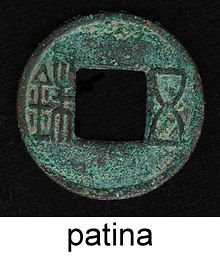
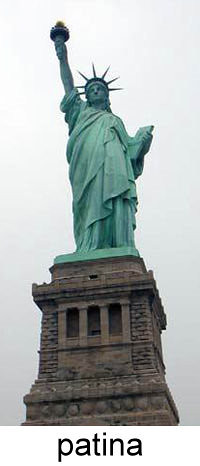
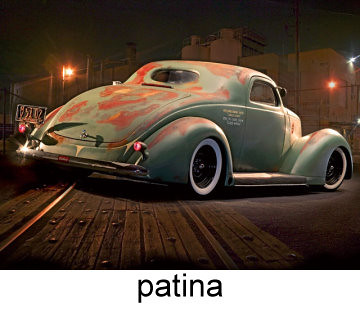
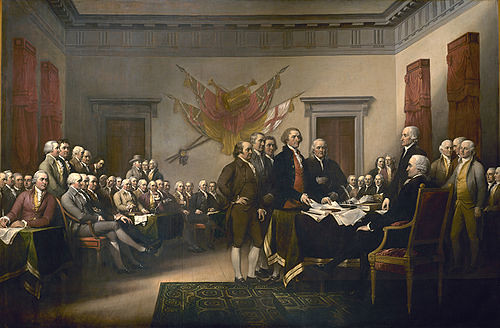
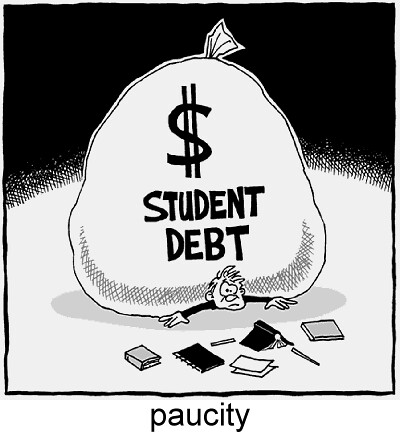
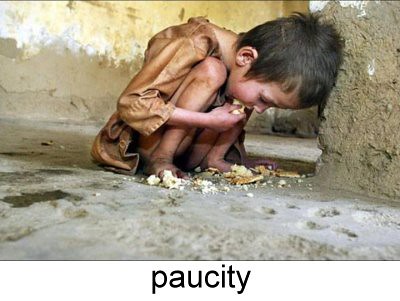
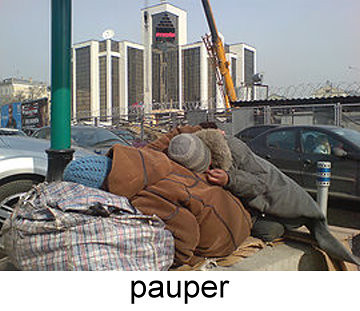
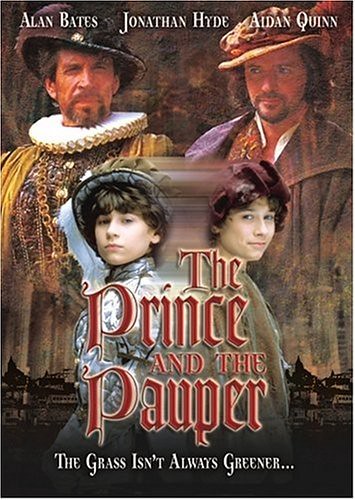
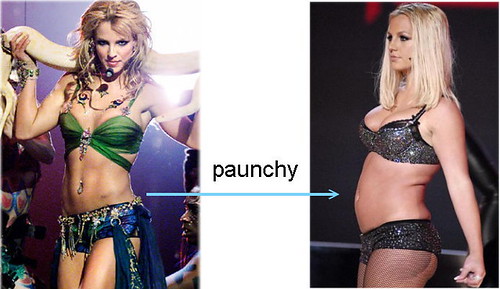
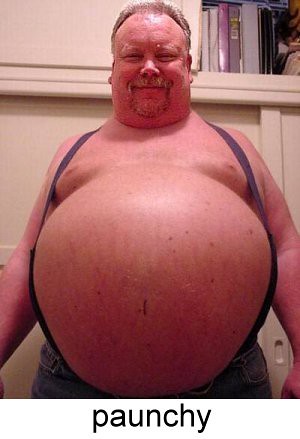
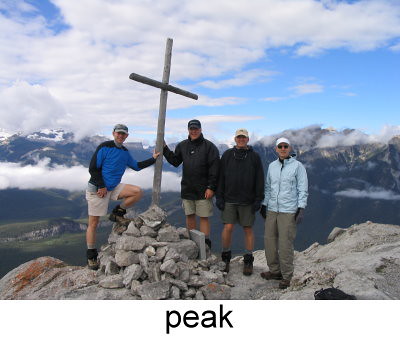


 留言列表
留言列表